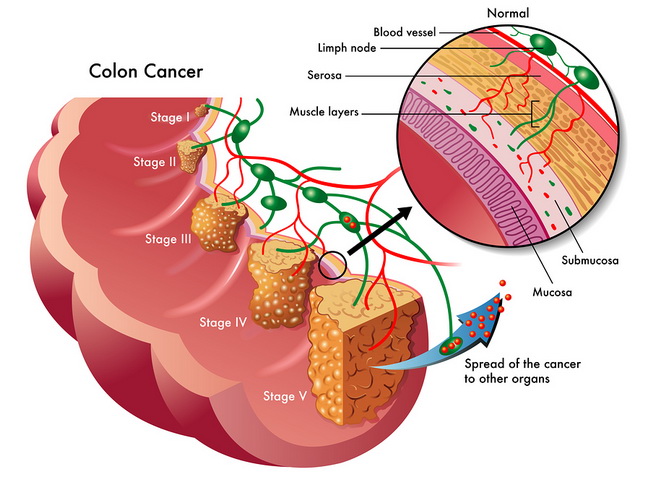- Make It Yourself Lavender Heart-Shaped Bath Bombs!
- 20 Things You Never Knew About “Down There”
- 12 Best Foods For Those Suffering From Arthritis Pain
- 12 Personal Hygiene Mistakes Almost Everyone Makes (Mom Never Told You About #4!)
- 15 Medicinal Plants And Herbs From The Cherokee People
- 12 Mind-Blowing Benefits Of Drinking Coconut Water During Pregnancy
- 12 Outstanding Winter Foods That Won’t Fatten You Up Like A Christmas Turkey
Top 11 Warnings Signs of Colorectal Cancer You Shouldn’t Ignore

Photo credit: bigstock.com
Although you might have heard that people with colon, rectal, or bowel cancer, generally referred to as simply colorectal cancer, have no symptoms or warning signs, this isn’t true for the most part. Many victims of this type of cancer state that they did have warnings signs, but for whatever reason, they chose to ignore them or dismiss them as some other type of minor health problem.
Since colorectal cancers are the third most common type of cancer diagnosed for both men and women, it’s important that you pay attention to the signs your body will give you. If you find that you are experiencing any of the 11 symptoms below, for your own peace of mind, you should see a doctor as soon as possible to rule out cancer. When caught early, this type of cancer has excellent chances of recovery.
Know the Risk Factors
- Family History – There is some evidence that shows that colon cancer might be hereditary. More than 20 percent of those with colorectal cancer had a close relative, either first degree or second degree relative, who also had this type of cancer.
- Obesity – Those who are morbidly obese also have an increased risk of developing this type of cancer.
- Diet – There is a very large amount of evidence that shows that a diet high in processed meats, red meat, and processed foods increases the risk of this type of cancer. A diet that is high in fiber, such as a plant based diet, will greatly decrease your risk.
- Smoking – Smokers have a greater chance of developing colorectal cancer, as well as other types of cancer and heart disease.
- Genetic Conditions – Some inherited conditions, such ashereditary non-polyposis colorectal cancer (AKA Lynch Syndrome), or FAP (asfamilial adenomatous polyposis), cause colorectal cancers.
- Excessive Alcohol – In one important study, called the EPIC study, alcohol, even small amounts of alcohol, was linked to the increased the risk of colorectal cancers. For every two glasses of alcohol a person drinks each day, the risk increases by 8 percent.
- Sedentary Lifestyle – Those who do not exercise and spend a great deal of time sitting are more likely to develop this type of cancer.
- Digestive Problems – People with Crohn’s disease, ulcerative colitis, and other digestive problems are also more likely to develop colorectal cancers.
- Cancer Survivors – Several studies showed a link between men who had previously had prostate or testicular cancer and colorectal cancer. Those who survived had a much greater chance of developing this type of cancer, not because it spread, but possibly due to the side effects of the type of cancer treatments they received.
- Diabetes – Those with type 2 diabetes have an increased risk.
- Racial/Ethnic Background – African Americans are more likely to develop colorectal cancer than any other racial group. Jews of Eastern European descent (Ashkenazi Jews) also have a high chance of developing this disease.
- Night Shift – Although scientists don’t know why, one study showed that people who work graveyard or night shift work for a minimum of 3 nights a week for 15 years or more are much more likely to develop colorectal cancers.
Continue to Page 2
































